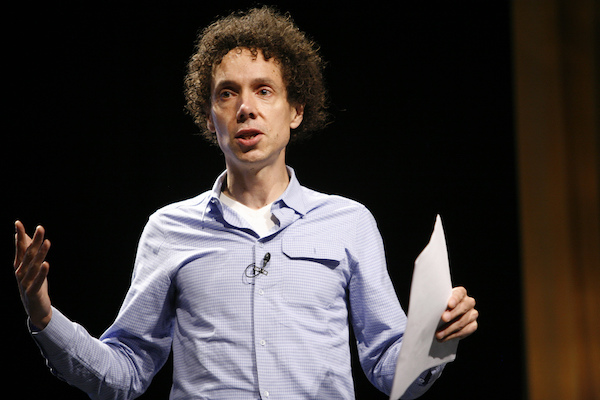Famous or useful?

If you’re famous you don’t have to be useful.
A while ago, I had an assignment to present to a small group: the CMOs of a massive media company. Since this company had a dozen major media brands, there were about twelve people in the room. They had tapped me after having me speak to a larger group, so they knew what they were getting — a talk about my latest book.
What I didn’t find out until the day before was that I was second on the docket. Malcolm Gladwell was first. He also had a book out.
They had not asked him to give a speech, and he did not. Instead, he rambled his way through a five-minute rumination about the media industry, and then they asked questions. His level of insight that day was low, and his answers to the questions were ordinary, but the audience was rapt.
After that I got up and did my usual schtick, which included statistics, observations about recent events, results of hundreds of interviews with media people like these CMOs, and jokes. I was nervous. They asked questions and I tried to answer them with facts and research. And I did poorly. The content was fine, the delivery was okay, but the reception was tepid.
I resolved not to follow Malcolm Gladwell again (as if I ever would have that choice).
Here’s the thing: Gladwell is very smart. He is also the best natural writer I have ever seen. I am in awe of his talent.
He uses that talent to tell stories that stick in the mind and get millions of readers.
Is he right? Sometimes. With so many readers, he also gets critics. Often the people who know most about what he is writing about say that he is wrong.
Frankly, it doesn’t matter. His job as a popular author is to entertain. He does that as well as anyone possibly can.
The rest of us writers need to understand that it is not our primary job to entertain. Sure, that’s part of it. Being boring is deadly. But our job is primarily to be useful.
Being useful means being right. It means checking your work, creating “what do next” lists, and being attuned to an audience that is not “everybody” (that’s Gladwell’s audience), but somebody specific: the CMO, a worker hoping to be more productive, a voter, or a startup founder.
To succeed at that takes evidence and stories, and it means expressing yourself well in articles, blog posts, books, newsletters, on stage in front of 1,000 people, or in a room with twelve.
I understand that famous people get to stand up and give speeches, too, but depending on what they’re famous for, they may not have much of use to say. We are still in awe of them. That’s fine, but just because they’re famous doesn’t mean they’ve thought things through or that we should listen to them. If an athlete thinks the earth is flat or an entertainer is opposed to vaccinations, they’re not just famous, they’re dangerous (and the opposite of useful).
I’m sure this is a shout in the dark, but yes, I’m telling you not to believe someone just because they are famous, attractive, a good actress, a good athlete, or something like that.
My chances of being famous in a Malcolm Gladwell-type way are small. But my chances of being useful are much higher. Not only that, I can improve my ability to be useful every day.
If someday I become famous for being so useful, that would be just fine. In the meantime, I’m happy to be as useful as I can to as many people as I can reach.
How useful are you? Who is your audience? Ask yourself. And feel free to tell me, too.
Sadly, you are right about the double standard. The bottom line is that different rules apply to different writers. If you had rambled when you spoke, then others would say, “That’s why he’s not successful.”
I look at books from Seth Godin and shake my head at their appeal. If I wrote that way, publishers would justifiably reject my manuscripts—never mind ask me to write subsequent books.
I pride myself on being useful as well. I realize, though, that that is neither necessary nor sufficient to achieve a massive level of success. It took me a long time to come to terms with this.
Being famous and being useful are two different paths. Yes, you can potentially become famous by being useful or useful by being famous, but those instances are rare. It is better to choose one or the other and then commit yourself fully to being that.
I’ve seen some truly rotten presentations by famous keynoters and some great ones by unknowns. So it goes. The real doozies are the big company speakers at trade shows. They can observe that the sun rises in the east and command the rapt attention of the supplicants
Appreciate your candid thoughts and insights as always, Josh! I shared this post with students and marketing communications professionals who are part of our Bethany College IMC Think Tank community on Facebook at https://www.facebook.com/groups/565569210146742/ Would love to have you join it.